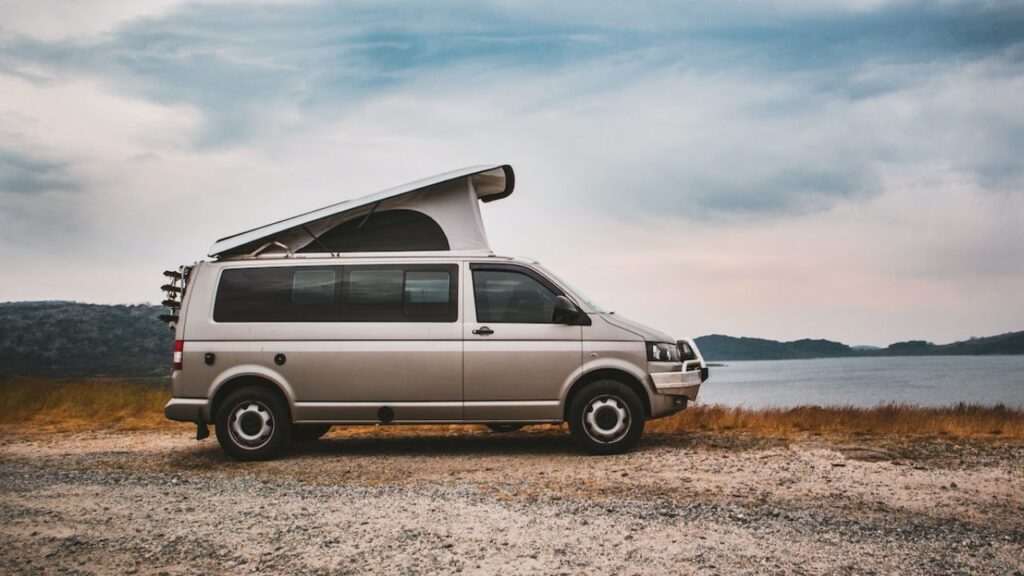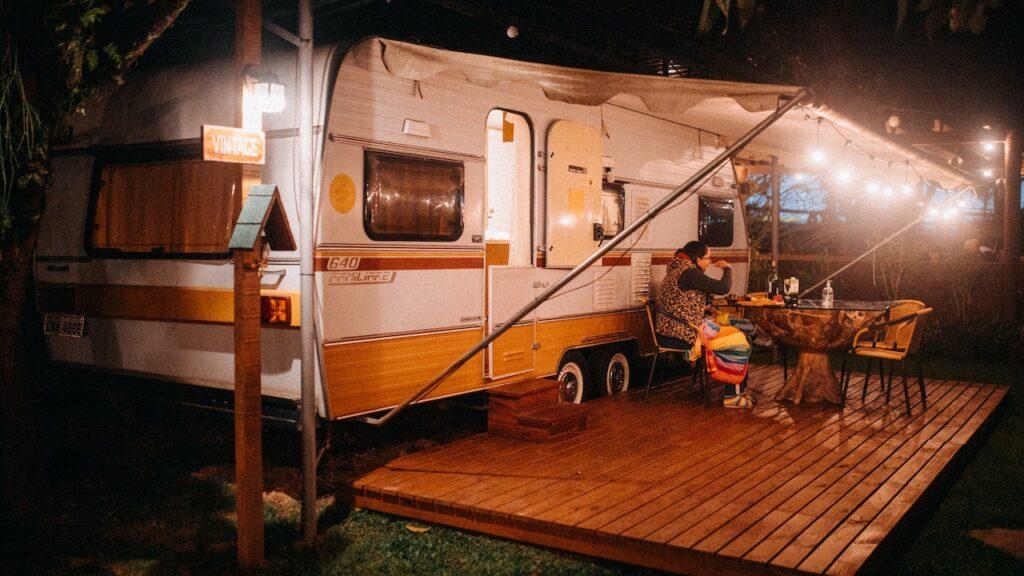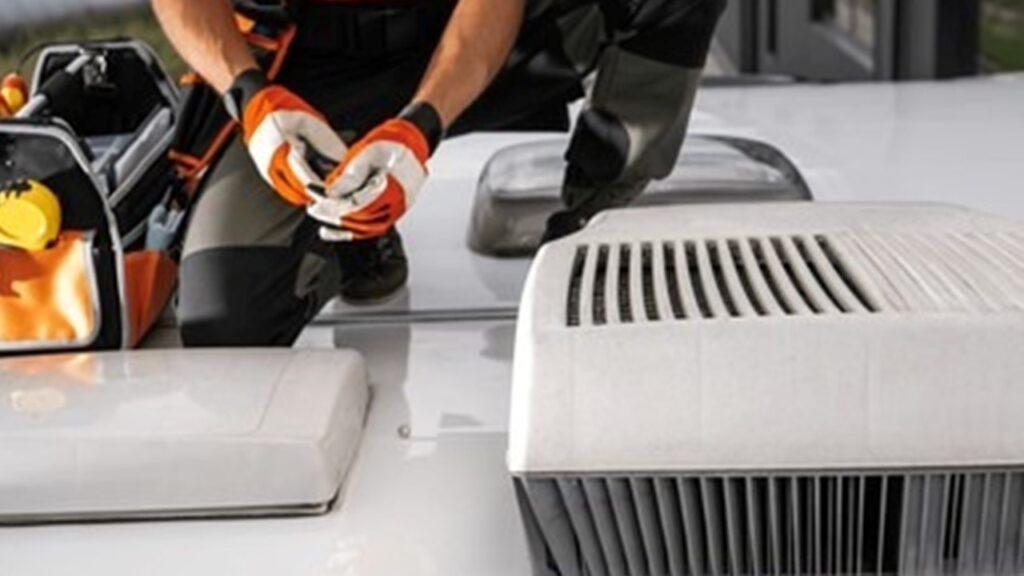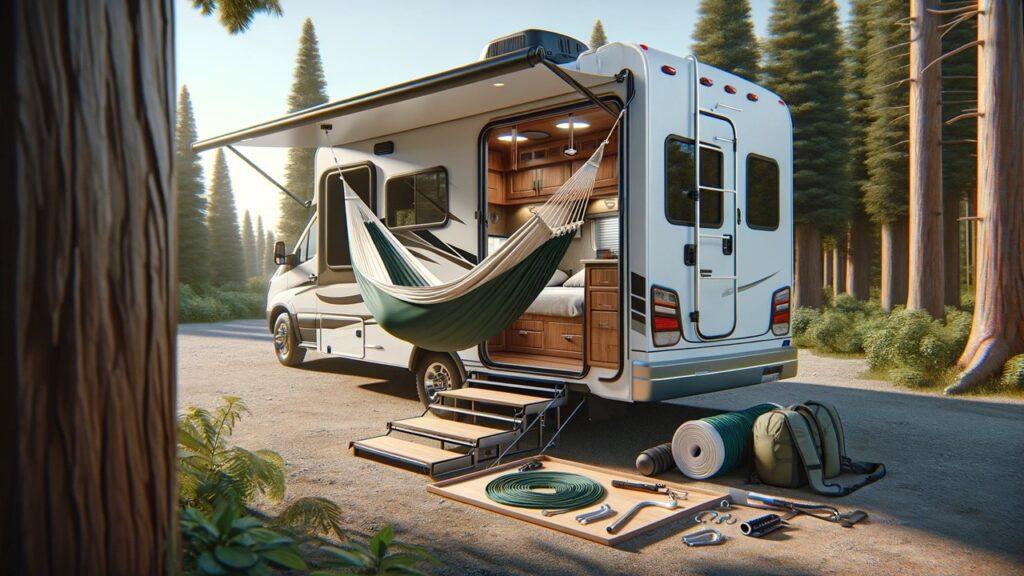
Many people have always loved traveling and exploring new places in a van. In this context, the term ‘campervan’ frequently emerges as a topic of interest. Wikipedia describes a campervan as a vehicle you can drive and also sleep in. Essentially, it is a fusion of a vehicle’s mobility with the comforts of a compact living space, making it an ideal choice for extended travels. However, the significance of campervans extends beyond their functional attributes. In recent times, there has been a discernible shift towards the van life culture. This movement underscores a preference for a simpler, nomadic lifestyle, facilitated by the versatility of campervans. It represents a conscious choice to prioritize experiences and exploration over traditional, stationary living. This article endeavors to provide a comprehensive overview of campervans, tracing their history, understanding their features, and delving into the ethos of the van life culture. For those contemplating an alternative mode of travel or considering a deeper dive into the campervan lifestyle, this guide seeks to offer clarity and insights. Let us embark on this informative journey of what is a campervan together.
Historical Background of Campervans
In the early 20th century, the world was rapidly changing. The industrial revolution had paved the way for mass production, and automobiles, once a luxury, were becoming accessible to the masses. Amidst this backdrop, a novel idea began to take shape. Visionaries and innovators started to reimagine the purpose of a vehicle. Instead of merely viewing cars as means of transportation, they envisioned them as potential mobile homes. The first campervans were rudimentary adaptations of this vision. Many were just regular cars, with the back seats removed and replaced with mattresses and basic amenities. These initial adaptations might have been simple, but they were groundbreaking. They challenged conventional notions of travel and living, laying the foundation for an industry that would see exponential growth in the decades to come.
The Volkswagen Type 2 Impact
The 1950s marked a pivotal era for the campervan movement. It was during this decade that the van life movement found its true icon – the Volkswagen Type 2. Commonly referred to as the VW Kombi or Microbus, this vehicle was more than just a mode of transport. With its distinct, rounded design, spacious interior, and the ability to customize, it quickly became a favorite among travelers and adventurers. But its impact went beyond its physical attributes. The Microbus became synonymous with a generation that was challenging societal norms. It represented freedom, adventure, and a shift in values, where experiences were prized over material possessions. The open road, the promise of new horizons, and the allure of uncharted territories became accessible to many, all thanks to this iconic vehicle.
Industry Evolution and Modern Adaptations
As the decades rolled on, the campervan industry witnessed significant transformations. The initial concept of a mobile home had proven its merit, and now it was time for evolution and innovation. The DIY campervan movement gained traction, with enthusiasts converting basic vans into customized living spaces, tailored to their unique needs. On the other end of the spectrum, luxury motorhomes began to emerge, equipped with state-of-the-art amenities, from built-in kitchens to advanced entertainment systems. Renowned automobile brands like Mercedes, Ford, and Dodge recognized the potential and entered the market. Each brought their unique design philosophy, engineering prowess, and brand legacy to the table, further enriching the campervan landscape. The industry, once defined by rudimentary adaptations, was now characterized by diversity, innovation, and a commitment to enhancing the mobile living experience.
Cultural Significance and Community Building
The campervan movement was never just about the vehicles; it was, and remains, a cultural phenomenon. As more people embraced the van life ethos, a unique subculture began to form. This wasn’t a solitary journey; it was a communal experience. Dedicated festivals, gatherings, and conventions sprouted across regions, providing enthusiasts a platform to connect, share stories, and celebrate their shared passion. This community was bound by more than just a love for campervans; it was united by a shared philosophy that prioritized freedom, exploration, and authentic experiences. The campervan became a symbol, a testament to a life less ordinary, defined not by destinations but by journeys, not by possessions but by memories.
A Nod to Vintage Campervans
In the midst of modern advancements and innovations, there’s a special place for vintage campervans. These vehicles, often characterized by their classic designs and nostalgic charm, are a bridge to the past. During my travels, I’ve had the privilege of encountering several of these vintage beauties. Each one tells a unique tale, of adventures undertaken, of challenges overcome, and of memories etched in time. Their scars, dents, and worn-out corners are not imperfections; they are badges of honor, testifying to the journeys they’ve facilitated. And while today’s campervans might boast sleek designs, cutting-edge technology, and advanced features, the essence of the campervan remains unchanged. It’s an essence rooted in freedom, exploration, and the timeless allure of the open road.
Definition and Features of a Campervan
A campervan, at its core, is a fusion of mobility and living. While the term might be used interchangeably with others like motorhome or RV, it has its distinct identity. According to various sources, including our earlier reference from Wikipedia, a campervan is a self-propelled vehicle designed to offer both transportation and sleeping accommodation. Unlike motorhomes, which often come with a coachbuilt body, campervans are typically vans that have been modified or fitted out to serve as a living space. This means they combine the compactness and agility of a regular van with the essentials of a mobile home. In essence, a campervan is your home on wheels, allowing you to travel without leaving the comforts of home behind.
Distinguishing Features of Campervans
What sets campervans apart from other vehicles isn’t just their ability to provide shelter. It’s a combination of both design, functionality and purpose. Here are some distinct features:
- Compact Design: Unlike larger RVs or motorhomes, campervans are more compact, making them easier to maneuver, especially in cities or tight spaces.
- Customizable Interiors: Many campervans, especially DIY campervan conversions, have interiors tailored to the owner’s needs. This can range from storage solutions to unique decor.
- Integrated Living Amenities: Most campervans come equipped with essential living amenities, such as a bed, kitchenette, and sometimes even a bathroom.
- Versatility: Campervans are versatile. These vehicles can serve as a daily driver and a weekend getaway vehicle. Campervans offer the best of both worlds.
- Economic Efficiency: Given their size, campervans often offer better fuel efficiency compared to larger motorhomes. This makes them a top choice for long-term travelers or those on a budget.
Campervans Vs. Other Vehicles
While campervans offer a unique blend of features, it’s essential to understand how they stack up against other vehicles in terms of outdoor adventures.
- Campervans vs. Motorhomes: Motorhomes are typically larger and come with more amenities, making them suitable for extended stays. However, their size can be a drawback when navigating city streets or tight spots. Campervans, being more compact, offer greater flexibility in this regard.
- Campervans vs. Caravans: Unlike campervans, caravans are towed by another vehicle. This means you can leave the caravan at a campsite and use the towing vehicle for day trips. Campervans, being self-contained, don’t offer this separation.
- Campervans vs. Regular Vans: While both might share a similar exterior, regular vans are designed purely for transportation. Campervans, on the other hand, are modified to include living amenities, making them suitable for travel and accommodation.
The Modern Campervan: A Blend of Tradition and Innovation
The campervan of today is a testament to decades of innovation, built upon a foundation of tradition. Modern campervans come equipped with advanced features. These features include solar panels or solar panel kits for off-grid living to state-of-the-art entertainment systems. Brands like Mercedes and Ford have introduced models that cater to the van life community, offering advanced safety features, improved fuel efficiency, and customizable interiors.
Furthermore, the rise of technology has also impacted the campervan industry. Today, it’s not uncommon to find campervans equipped with Wi-Fi, GPS navigation, and smart home systems. Moreover, ensuring travelers stay connected, even on the move.
Yet, despite these advancements, the essence of the campervan remains rooted in its history. It continues to symbolize freedom, adventure, and the joy of exploration, echoing the sentiments of the early pioneers who first envisioned a home on wheels.
Campervan vs. Other Recreational Vehicles (RVs, Motorhomes)
Before diving into the intricacies of differences and similarities, it’s crucial to understand the broader spectrum of recreational vehicles. At one end, we have the campervan, a modified van equipped with essential living amenities, compact and versatile. On the other end, there are RVs and motorhomes, larger vehicles designed explicitly for recreational travel and extended stays. While all these vehicles share the primary purpose of combining transportation with living, their features, sizes, and intended uses can vary significantly.
Key Differences Between Campervans and Other RVs
- Size and Maneuverability: Campervans are typically smaller than most RVs and motorhomes. This compactness allows for easier maneuverability, especially in cities or tight spaces.
- Amenities and Facilities: While campervans come equipped with basic living amenities, larger RVs and motorhomes might offer more luxurious features, such as larger bathrooms, expanded kitchen areas, and separate sleeping quarters.
- Customization: Campervans, especially those that are DIY conversions, offer a higher degree of customization. Owners can tailor the interiors to their specific needs, whereas RVs and motorhomes often come with predefined layouts.
- Fuel Efficiency: Given their smaller size, campervans generally tend to be more fuel-efficient than their larger counterparts.
- Price Point: Campervans, especially used or DIY models, can be more budget-friendly compared to brand-new, fully-equipped motorhomes.
Similarities Shared Across the Board
- Purpose: Both campervans and other RVs serve the dual purpose of transportation and accommodation.
- Self-Contained: Most campervans, RVs, and motorhomes are self-contained, meaning they have onboard facilities for sleeping, cooking, and basic hygiene.
- Freedom of Travel: Both offer the freedom to travel at one’s own pace, stay at desired locations, and change plans on the fly.
- Community: Whether you’re part of the van life movement or the broader RV community, there’s a shared sense of camaraderie, with dedicated festivals, gatherings, and online forums for enthusiasts.
Why Choose a Campervan Over Other Options?
Choosing between a campervan and other RVs boils down to individual preferences, needs, and travel goals. However, there are distinct benefits to opting for a campervan:
- Flexibility: Their compact size makes campervans ideal for spontaneous trips, allowing travelers to navigate city streets, park in standard parking spots, and access tighter campgrounds.
- Economic Benefits: From purchase price to fuel efficiency and maintenance, campervans can often be a more economical choice for those mindful of their budget.
- Simplicity: The van life ethos often revolves around simplicity and minimalism. Campervans, with their limited space, encourage a simpler way of living and traveling.
- Customization: For those who love DIY projects, campervans offer a blank canvas. Enthusiasts can design interiors that reflect their personality and needs.
- Connection with Nature: With fewer amenities to distract, campervan travelers often find a deeper connection with the outdoors, opting for more rustic camping experiences.
The choice between a campervan and other recreational vehicles is deeply personal, influenced by one’s travel aspirations, lifestyle, and priorities. Whatever the choice, the open road beckons, promising adventures, memories, and a journey like no other.
Benefits of Owning a Campervan
Jumping into a campervan is like opening a book filled with blank pages, waiting for stories to unfold. Every turn of the road writes a new chapter, every sunset paints a fresh picture. It’s not just about wheels and an engine; it’s a passport to freedom, adventure, and countless memories.
Unparalleled Flexibility and Freedom
Owning a campervan is like holding a golden ticket to spontaneous adventures. Imagine this: waking up with a desire to explore a new town or a hidden beach, and all you need to do is turn the ignition. No hotel bookings, no rigid plans. Just you, the road, and endless possibilities. Furthermore, you’re not tied down to check-in or check-out times. Found a picturesque spot by a river? Feel free to stay an extra day or two. Campervan life is all about embracing flexibility and savoring every moment.
Economic Advantages
At first glance, buying a campervan might seem like a hefty investment. Nevertheless, when you delve deeper, the economic benefits become clear. Think about the savings on hotel bills. With your bed in the back, every night’s stay is free. Moreover, having a kitchen means you can whip up meals, saving a considerable amount on dining out. And let’s not forget the rising popularity of the van life movement. A well-maintained campervan can be a valuable asset, potentially appreciating over time.
A Deeper Connection with Nature and the Outdoors
In our fast-paced digital world, moments of genuine connection with nature are precious. Owning a campervan offers this in abundance. Whether it’s parking beside a tranquil forest, waking up to the sound of waves, or stargazing from your rooftop, these experiences are soul-nourishing. Moreover, the campervan lifestyle naturally encourages outdoor activities. Hiking, beachcombing, or simply enjoying a sunset becomes a regular part of life. It’s not just about reaching a destination; it’s about cherishing the journey and the serendipitous moments along the way.
Embracing the campervan life is more than a travel choice; it’s a heartfelt decision. It’s about adventures, smart economics, and a profound connection with our beautiful world. For many, it’s the doorway to experiences they’ve only dreamed of and memories that last a lifetime.
The Rise of the Van Life Movement & Campervan
The hum of an engine, ever-changing horizons, and a close-knit community – this is the “van life.” Across the globe, it’s capturing hearts and imaginations. But why? Why are diverse individuals choosing a vehicle as home? Let’s dive into this unique lifestyle, exploring its stories, inspirations, and the magic of life on wheels.
A Community Beyond Four Wheels
The “van life” isn’t just about living in a vehicle; it’s a movement, a mindset, and for many, a calling. At its heart, it’s a community of free spirits, wanderers, and adventurers who’ve chosen the open road over brick and mortar. They’ve traded sprawling homes for compact spaces, and in return, they’ve gained a world without boundaries. The campgrounds become neighborhoods, fellow travelers turn into lifelong friends, and every sunrise brings a new backdrop. This community thrives on shared experiences, tales of the road, and the collective wisdom of life on the move.
The Social Media Spark
Scroll through Instagram or TikTok, and you’ll likely stumble upon picturesque shots of vans parked by serene lakes, cozy interiors lit by fairy lights, or a traveler sipping coffee against a mountainous backdrop. Social media hasn’t just showcased van life; it’s amplified it. Platforms like Instagram have given van lifers a space to share their journeys, tips, and the raw, unfiltered realities of this lifestyle. These visual stories, coupled with the allure of freedom and simplicity, have inspired countless others to consider this alternative way of living. The hashtags tell a story of their own: #VanLife, #HomeIsWhereYouParkIt, and #RoadLife, each echoing the sentiments of a growing community.
Stories from the Road
Every van has a story, and so does its dweller. Take Jake, for instance, a graphic designer who traded his city apartment for a campervan, seeking a life unburdened by rent and routine. Or Mia, who found solace in the van life after a tumultuous year, discovering herself amidst nature’s vastness. Then there’s the couple, Sarah and Raj, who decided their honeymoon wasn’t going to be a two-week affair but a year-long journey across continents in their trusty old van. These personal tales, each unique, weave the rich tapestry of the van life community. They speak of challenges faced, joys discovered, and the profound realization that sometimes, less truly is more.
The van life movement is more than a trend; it’s a testament to the human spirit’s yearning for freedom, connection, and authentic experiences. It’s about finding home wherever you park and cherishing the journey as much as the destination. As more people share their stories, the movement only grows, inviting others to explore a life beyond conventions.
Pros and Cons of DIY Campervans Vs. Pre-Made
The allure of the open road has many seeking their perfect travel companion. For some, it’s a self-crafted campervan, while others prefer the convenience of a pre-made model. But which is the better choice? Let’s delve into the world of DIY conversions and pre-made campervans to weigh the pros and cons.
The Growing Trend of DIY Conversions
Crafting a personalized space has a certain romance to it. Many adventurers are taking standard vans and transforming them into unique homes on wheels. This trend isn’t just about customization; it’s a reflection of individuality. Every shelf, curtain, or piece of decor tells a story, making the van not just a vehicle, but a personal sanctuary. Moreover, DIY enthusiasts often find joy in the process, from conceptualizing designs to the final touches.
Benefits of DIY Conversions
Going the DIY route offers a sense of accomplishment. Every modification is tailored to specific needs, ensuring optimal use of space. Financially, DIY can be more budget-friendly, allowing adjustments based on one’s wallet. Furthermore, the ability to choose materials ensures quality and personal aesthetics. Lastly, there’s an emotional connection. Building your campervan fosters a bond, making every journey even more special.
Advantages of Buying a Pre-Made Campervan
On the flip side, pre-made campervans offer convenience. There’s no need to fret over installations or designs; it’s all ready to go. Manufacturers ensure optimized layouts, often backed by research and feedback. Safety standards are rigorously maintained, providing peace of mind. Moreover, warranties and after-sales services can be significant advantages. For those not inclined towards DIY projects, pre-made models save time, letting travelers hit the road sooner.
Choosing between DIY and pre-made campervans is a personal decision, influenced by time, budget, and individual preferences. Whether crafting a unique space or opting for a ready-made home on wheels, the ultimate goal remains the same: to explore, discover, and cherish the freedom of the open road.
Essential Amenities and Features in Modern Campervans
The campervan has evolved from a simple mode of transport to a symbol of freedom and self-expression. As more individuals are drawn to the allure of the open road and the promise of new horizons, the modern campervan has adapted to meet their needs. Today, it’s not just about mobility; it’s about creating a home away from home. This transformation has been driven by both necessity and innovation, leading to a blend of essential amenities and cutting-edge features.
Must-Have Features for Every Campervan
Every campervan, regardless of its size or design, shares a core set of features that define its functionality:
- Bed: At the end of a long day’s journey, a comfortable bed is essential. Modern campervans often incorporate versatile designs, with beds that can easily convert into seating areas, ensuring optimal use of space.
- Kitchenette: The heart of any home is the kitchen. In a campervan, the kitchenette, though compact, is fully equipped with essentials like a stove, sink, and fridge, ensuring travelers can prepare meals wherever they are.
- Storage: Space is at a premium in a campervan. Ingenious storage solutions, from under-bed compartments to multi-purpose furniture, ensure that every inch is utilized.
- Ventilation: Proper ventilation is crucial. Whether through strategically placed windows or roof vents, it ensures a steady flow of fresh air, enhancing comfort.
- Lighting: As the sun sets, efficient LED lighting takes over, illuminating the interiors and setting a cozy ambiance.
- Power Source: Modern campervans often incorporate sustainable solutions like solar panels. These, along with secondary batteries, ensure that devices remain charged and essential appliances function seamlessly.
Innovations and Technologies in Newer Models
As technology advances, so do campervans:
- Smart Home Systems: Modern campervans are integrating smart home technology, allowing users to control various aspects, from lighting to temperature, with just a voice command or a click.
- Eco-Friendly Features: With a growing emphasis on sustainability, features like solar roofs and composting toilets are becoming standard in many models.
- Advanced Safety Features: Safety is paramount. Features like rearview cameras, lane assist, and GPS tracking systems provide an added layer of security.
- Wi-Fi Boosters: In our connected world, staying online is often essential. Integrated Wi-Fi boosters ensure connectivity even in remote locales.
- Space-Saving Designs: Innovations like rotating cabinets, retractable countertops, and modular furniture ensure that space is optimized without compromising on comfort.
- Insulation: Advanced insulation materials are being used to ensure that campervans remain comfortable, regardless of external weather conditions.
Tips for Optimizing Space and Comfort
A campervan, though compact, can be incredibly comfortable with a bit of planning:
- Multi-Functional Furniture: Furniture that serves multiple purposes, like convertible beds or storage benches, is invaluable.
- Vertical Storage: Walls aren’t just boundaries; they’re storage opportunities. Racks, magnetic strips, and hooks can hold a variety of items.
- Declutter Regularly: It’s easy for a small space to feel crowded. Regular decluttering ensures that only essentials remain.
- Use Organizers: Organizers, from drawer dividers to storage bins, can significantly enhance space efficiency.
- Opt for Compact Appliances: Space-saving appliances, designed specifically for compact living, can make a world of difference.
- Personal Touches: Making the space feel like home is essential. Personal touches, whether it’s a cherished photo or a favorite cushion, add warmth and personality.
The modern campervan is a marvel of design, functionality, and technology. It caters to the adventurous spirit while ensuring comfort and convenience. As the boundaries between home and vehicle blur, it’s evident that the campervan is more than just a mode of transport; it’s a lifestyle choice. Whether you’re exploring backcountry roads or navigating urban jungles, the campervan stands as a testament to the human desire for freedom, exploration, and innovation.
Tips for First-Time Campervan Buyers
The allure of the open road, the promise of endless adventures, and the freedom to roam – these are just a few reasons why many are drawn to campervans. As you stand on the cusp of this exciting purchase, understanding the intricacies can make your investment truly worthwhile.
Factors to Consider When Purchasing A Campervan
Choosing the right campervan is a blend of understanding your needs and knowing what the market offers:
- Size and Layout: Your travel style dictates your choice. Weekend wanderers might find the compact Volkswagen California perfect, while those dreaming of long-haul journeys might lean towards the spacious Mercedes-Benz Sprinter.
- Fuel Efficiency: Long-term travel costs hinge on fuel efficiency. It’s worth researching models like the Ford Transit and Fiat Ducato to gauge their mileage.
- Amenities: Your comfort on the road depends on the amenities. Do you envision a campervan with a plush kitchenette, or are basic facilities sufficient?
- Brand Reputation: Established brands like Volkswagen, Mercedes-Benz, and Ford have a track record. Dive deep into user reviews and expert opinions to gauge their reliability.
Budget Considerations When Purchasing A Campervan
Your dream campervan should align with your financial realities:
- New vs. Used: A shiny new Mercedes-Benz Marco Polo is tempting, but a well-maintained used Nissan NV200 might be a budget-friendly gem.
- Financing Options: Dealerships often provide financing options. Delve into the fine print, understanding terms and interest rates.
- Resale Value: Think long-term. Models like the Volkswagen Transporter are known for their robust resale values.
- Maintenance Costs: Factor in upkeep. Some brands, like Renault and their Trafic model, might offer cost-effective maintenance packages.
Where to Buy and What to Look Out For When Purchasing A Campervan
Your buying source can influence your campervan experience:
- Authorized Dealerships: Purchasing from official dealers, be it for a Ford Transit Custom Nugget or a Fiat Ducato, often comes with warranties and guarantees.
- Private Sellers: A Volkswagen Grand California from a private seller might be a steal, but it’s essential to be vigilant. Ensure thorough vehicle checks.
- Inspections: A mechanic’s expert eye can spot potential issues. Look for wear signs, rust, or unauthorized modifications.
- History Check: A vehicle’s history can reveal past accidents or finance issues. Always do a thorough check.
Embarking on the campervan journey is exhilarating. With the right knowledge and considerations, your first purchase can be the start of countless memorable adventures. Here’s to the open roads, starry nights, and the thrill of new horizons in your very own home on wheels!
Final Words
Campervans represent more than transportation; they symbolize freedom, adventure, and exploration. Over time, these vehicles have evolved from basic modes of transport to fully-equipped mobile homes. They cater to diverse needs, from weekend escapades to extended journeys. Each model, from the iconic Volkswagen California to the roomy Mercedes-Benz Sprinter, offers unique features.
Furthermore, our deep dive into campervans highlights their vast and varied world. The van life movement emphasizes their appeal. It’s not just about reaching destinations; it’s about cherishing the journey, the experiences, and the unfolding stories. In this context, the campervan becomes a canvas for its owners, capturing adventures and memories.
Moreover, the campervan’s allure is undeniable, but an informed approach is crucial. Knowing your needs, understanding your budget, and researching market offerings can make your campervan journey fulfilling. It ensures memorable experiences without unforeseen challenges.
Nevertheless, while campervans are captivating, it’s vital to navigate this world with knowledge. An informed perspective ensures a seamless blend of adventure and comfort.
In conclusion, if distant horizons call you, if you yearn for a mobile haven, then delve into the campervan world. Embrace the adventure, explore the unknown, and let your campervan be your guide. Here’s to safe travels and unforgettable memories on the open road.
FAQs
How much does a typical campervan cost?
The cost of a campervan varies widely based on size, brand, and features. On average, prices range from $20,000 for basic models to over $100,000 for luxury versions.
Is it difficult to drive a campervan compared to a regular car?
Driving a campervan requires some adjustment due to its size and weight. However, with practice, many find it as manageable as driving a regular car.
Can I live in a campervan full-time?
Yes, many individuals live full-time in campervans. It’s essential to plan for amenities, parking, and adhere to local regulations.
What are the maintenance costs associated with campervans?
Maintenance costs can vary. On average, expect to spend between $500 to $1,000 annually, excluding unforeseen repairs.
How do I find places to park and camp overnight?
Many apps and websites list campervan-friendly spots. Additionally, some regions have designated overnight parking areas for campervans.

Ash is an author at OutdoorCarry. He specializes in writing articles realted to van and RVs as he is an outdoor and tech enthusiast and he loves driving and camping and enjoying open roads. Over the past eight years, Ash has been working independently and writing contents on RV and RV related items, and also contributing to some reputable blogs. His goal is to provide real value to his readers and share his experince and expertise.







